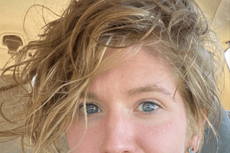TikToker selling human bones — including fetus skulls — spark ethics debate
New Yorkers says he wants to ‘detstigmatise’ trade

A businessman selling bones and even foetus skulls through his online store has sparked an ethics debate after advertising his work through TikTok.
Jon-Pichaya Ferry, or ‘JonsBones’ on TikTok, is followed by more than 500,00 fellow TikTokkers and has been liked more than 22 million times for his videos of skulls and bones.
The content of his videos are a form of advertisements for his online human osteology business, which he runs from his home in New York City.
While many have watched his TikTok videos of human body parts including foetus skulls and spines — and other rare human remains — others have asked whether or not it is ethical.
The human osteology trade is centuries old and according to reports, it can be difficult to trace where skulls and bones have come from, because it involves unidentified bodies.
Mr Ferry told ABC News last week that his main sources were museums, universities and research organisations and that he wanted to teach people about the human body.
He admitted that people who have inherited bone collections had been in touch, but that his bones and skulls were from “medical sources that were used for medical education.”
Tanya Marsh, a law professor at Wake Forest University in North Carolina, said that selling human remains is “unethical because there is no consent”, despite the use of body parts in medical institutions.
“People don’t request to be skeletonised before they pass, especially when it comes to fetus skulls,” said Ms Marsh.
“It is not privileged members of society whose bones end up being sold; it is people who are marginalised while they are alive, and they are further dehumanised and marginalised during death.”
Mr Ferry said “I think when it comes to human osteology, it’s an extremely sensitive topic. We really believe that the original purpose of these pieces were for education and understanding.”
Mr Ferry said he does not ask the reason for customers purchasing his bones and skulls.
Join our commenting forum
Join thought-provoking conversations, follow other Independent readers and see their replies
Comments




Bookmark popover
Removed from bookmarks